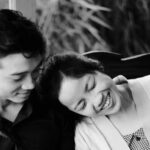
Korean adoptees have grown up in every corner of the US, and their differing experiences speak to critical perspectives on national, racial, and ethnic identities. If you’re interested in reading literature by Korean adoptee authors who possess imaginative force and insight, here are four books in which Korean adoptee storytellers share with us their powerful creative visions.
Sorry to Disrupt the Peace by Patty Yumi Cottrell
The narrator of Cottrell’s novel, Helen Moran, is a thirty-two-year-old Korean adoptee who works in New York City as a counselor for troubled youth. When her brother—also a Korean adoptee—commits suicide, she returns to Milwaukee to investigate the circumstances surrounding his death. We learn that Helen and her brother weren’t particularly close, but that they relied on each other as the one other person who had also experienced the bewildering trials of growing up a Korean adoptee in a Midwestern household dominated by European culture and ideals. As Helen uncovers the reasons why her brother would have wanted to take his own life, she journeys through her own anger and malaise and discovers her personal desire to survive.
Cottrell is a perceptive writer whose eye for both melancholic and humorous moments shine through a style that is wry, witty, and cynical. The narrator, Helen, is a charming and memorable character. At times reckless and rash, she gets into high jinks that can make you stop in your tracks or laugh out loud. At other times she is deeply thoughtful and insightful as she dives into the depths of her own sadness without ever wallowing in self-pity.
Told as a detective novel of sorts, Sorry to Disrupt the Peace is a sad story lightened by a lively narrator who, in the end, finds quiet, personal hope. Readers looking for a book that will tug at their heartstrings while making them smile won’t be disappointed.
Fugitive Visions: An Adoptee’s Return to Korea by Jane Jeong Trenka
In Trenka’s first memoir, The Language of Blood, she describes her experiences growing up as a transracial adoptee in Minnesota. Fugitive Visions is Trenka’s second memoir and focuses on her sixth return to Korea, when she decides to move there. Living in Korea, Trenka encounters difficulties that challenge her senses of self and belonging. She endeavors to learn the Korean language, yet her accent continually causes strangers to ask her what she is, presuming that she cannot be Korean. She also meets her blood relatives and explores her painful relations to her birth mother as she attempts to grapple with the fact that someone could give up their own child.
Trenka is an activist as well as an author, and she still works in South Korea. In Fugitive Visions, she tackles the case of transnational adoption from many different angles, sharing her own psychological journey and analysis while also investigating the legal and social processes that enabled transnational adoption and its damaging effects. Throughout the memoir, Trenka is skilled at parsing cultural artifacts like specific words to reveal hidden underlying patterns. Her writing is poetic, as she toys with the memoir genre by mixing in disparate passages like word associations and quizzes. It is also highly musical, as Trenka thinks in tune with her musical background and brings the concepts of harmony and dissonance to the fore.
A memoir that deals with the frustration and pain of an adoptee returning to a motherland that treats her as an outsider, Fugitive Visions would appeal to readers who want to learn more about transnational adoption and the struggle that Trenka has gone through to understand it.
The Lost Prayers of Ricky Graves by James Han Mattson
In Mattson’s novel, Ricky Graves is a closeted gay teenager living in New Hampshire. His classmates bully him, and he has no one close to confide in while enduring his loneliness and despair. When one of his classmates posts a humiliating photo of him on the internet, Ricky shoots him, another classmate, and then himself. Mattson’s novel explores the last period of Ricky’s life through the perspectives of others: his sister, his mother, a man he meets online, his sister’s boyfriend, his one friend, and the classmate who survived the shooting. Through these different accounts, we are able to put together a tragic picture of a young man struggling to keep from drowning while those around him do little to help.
The Lost Prayers of Ricky Graves was partially inspired by the story of Tyler Clementi, a college student who committed suicide in 2010 after his roommate outed him by sharing a video of him with another man online. In Mattson’s novel, we get glimpses into Ricky Graves’s growing distress through other characters’ first-person narratives as well as transcripts of Ricky’s online chats and his mother’s emails to a self-help author. Adding to its themes of isolation, humiliation, and desperation, the novel includes smart commentary on the unfortunate psychological and social effects of the internet and social media.
A story that deals with the crushing weight of loneliness and isolation, The Lost Prayers of Ricky Graves will appeal to readers who would like to think more about the critical role that social support systems—and the lack of them—play in young people’s lives and the ways in which homophobia and bullying have evolved alongside our technology.
The Hundred-Year Flood by Matthew Salesses
Tee, the protagonist of Salesses’s novel, wakes up in a hospital in Boston with a head injury that has scrambled his memories. He begins to remember the time he has just spent in Prague, where he has sojourned to find himself (and lose himself) after the suicide of his uncle and the aftershocks of 9/11. There he meets a painter, Pavel, his wife, Katka, and their friend, Rockefeller. The three of them—especially Katka—tantalize Tee, and he spends time drinking with them as he revisits his past and complicated family history. Through his reminiscing, we learn about Tee’s ambivalent relationships to his family—his father in particular—and his identity as a mixed-race Korean adoptee. While Tee faces up to his place in the world, a massive flood that returns every one hundred years begins to engulf Prague.
The Hundred-Year Flood is a winding work written in short segments that impart upon the narrative the nonlinear jumps and flows of memory. Through this piecemeal exploration of the past, the characters’ stories play off one another, and we see how events in different lives parallel each other, even when they happen in different times and different countries. All of this is deepened by resonant symbols and mythical references, which Salesses uses to develop a rich, weighty mood that swells as the floodwaters rise in the city.
With its clever use of form and its nested stories, Salesses’ novel would appeal to readers looking for a book that explores introspective journeys through the tangled threads of memory.















